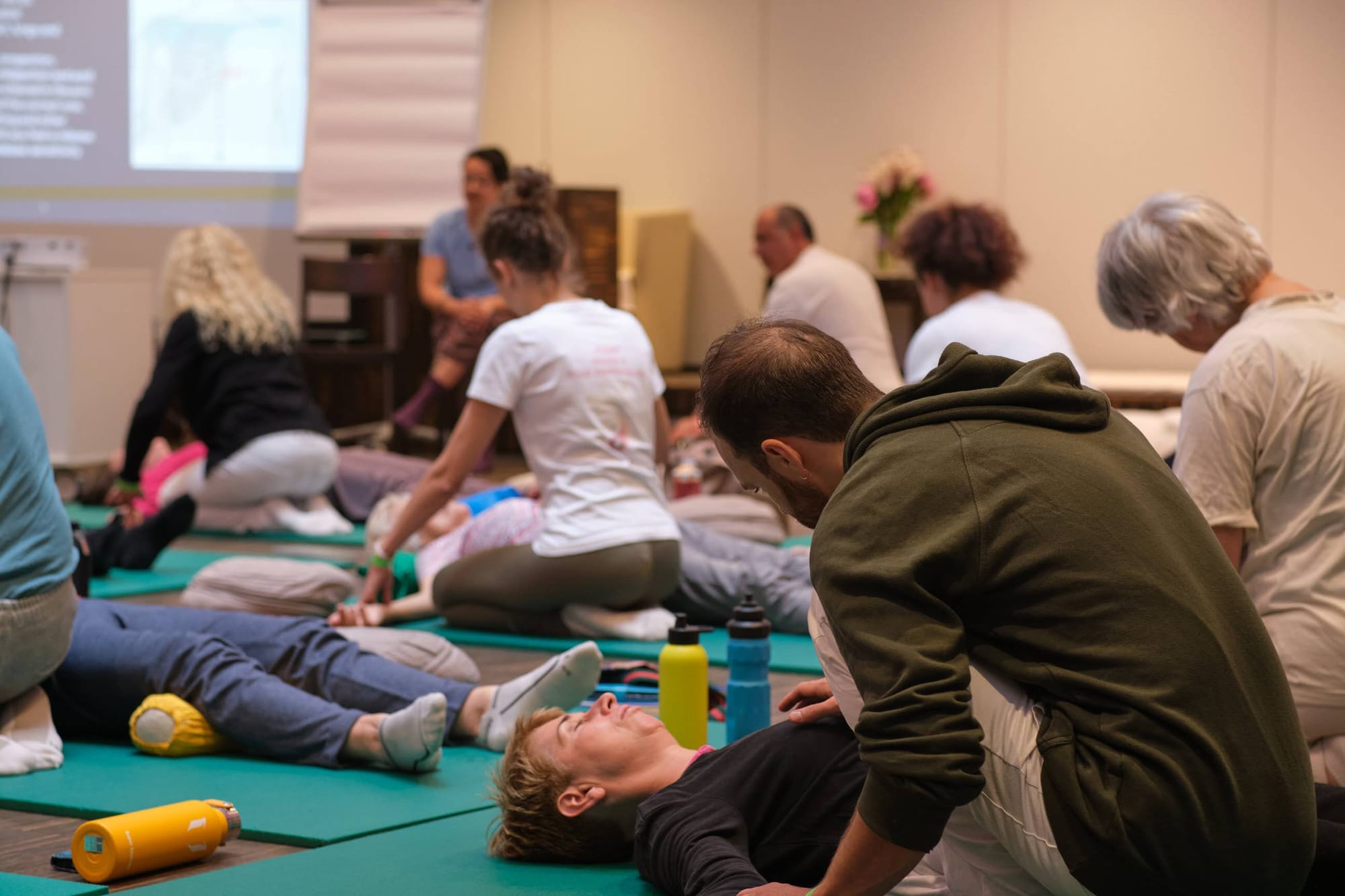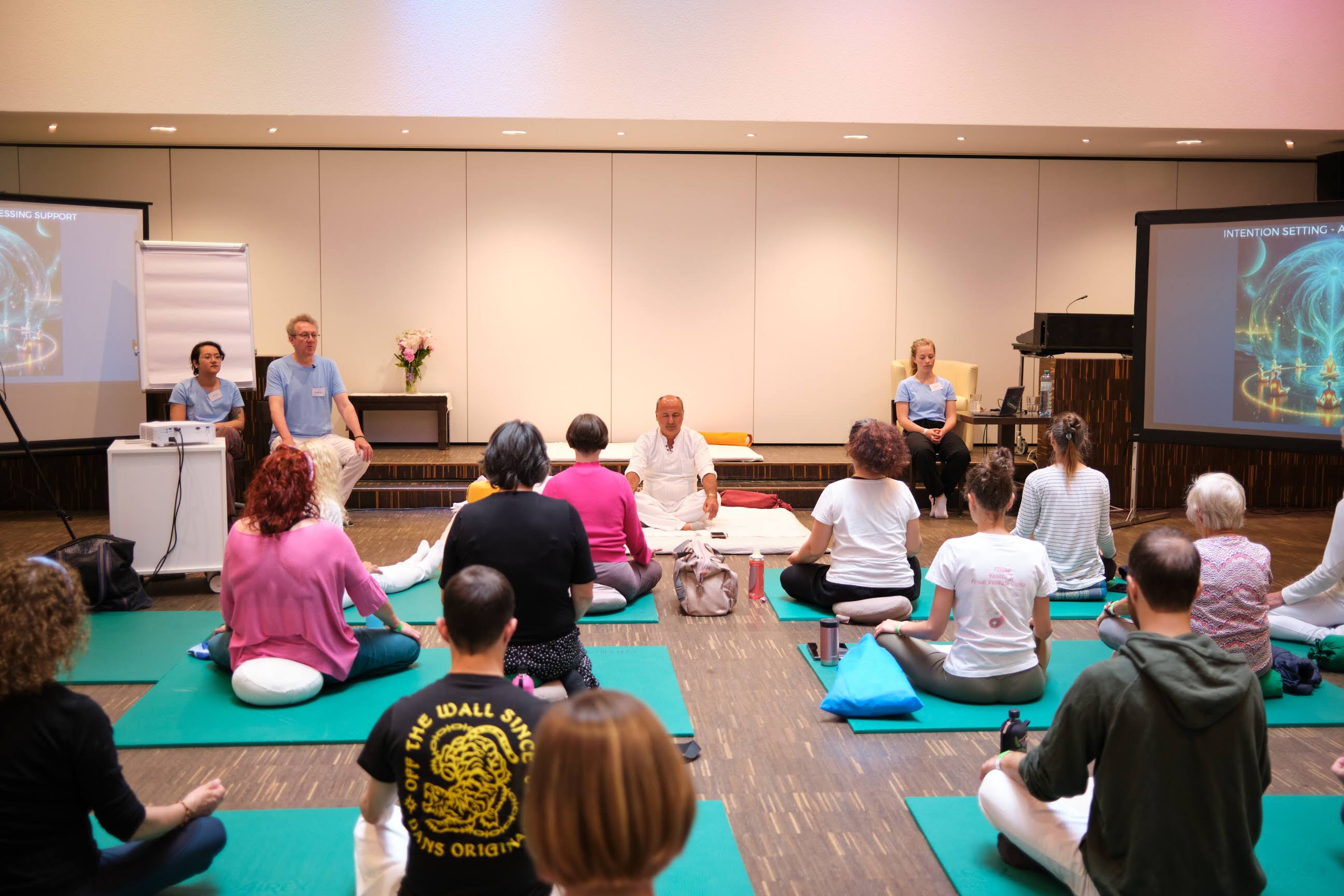Why Therapists Need More Trauma Healing - Not Just Tools

By Mihael Mamychshvili

As therapists, bodyworkers, somatic practitioners, or healers, we often find ourselves standing at the brink of someone else’s pain—navigating it with empathy, curiosity, and clinical expertise. We’ve been trained to listen, to regulate, and to equip our clients with tools for healing. We delve into trauma theory, study the latest neuroscience, and master various techniques to guide others through their journeys.
Yet, there’s a profound truth that many of us hesitate to confront:
Despite our extensive toolkits, numerous therapists have yet to fully acknowledge and address their trauma.
This isn’t a matter of willingness; it reflects the structures we operate within that often create a divide between the "practitioner" and the "person." We are conditioned to remain composed, professional, and at a distance, viewing ourselves as helpers rather than as individuals with our own vulnerabilities.
However, trauma healing isn't merely something we facilitate for others; it’s a journey we must embark upon ourselves. Until we do, our nervous system—conscious or not—transmits everything we carry into our therapeutic interactions. It influences our touch, our tone, and the essence of our presence.
You Can’t Outsmart What the Body Continues to Hold
You may be the most insightful and compassionate therapist in the room, but if your body is entangled in survival mode, your clients will pick up on it. This may present as over-efforting, emotional exhaustion, numbness, or manifest in physical symptoms like migraines, digestive issues, joint tension, or burnout.
Many therapists who attend my workshops voice a common sentiment: despite years of practice, something still feels lacking.
They’ve done the work, yet their own trauma remains lurking just beneath the surface—unacknowledged and unprocessed.
“After 20 years of holding space for others, I never realized how much of my own trauma I had buried beneath my professionalism. During your workshop, I finally experienced what it meant to truly feel safe in my body. I cried, I shook, I breathed—and I reconnected with the person I was before I became a therapist.” —
Elena C., Psychotherapist, Canada
Learning Another Technique Isn’t the Answer

The therapeutic industry is flooded with new trauma techniques—from somatic methods to polyvagal insights, EMDR to EFT, and internal family systems to neuroplasticity hacks.
While these tools can be transformative, they cannot supplant the essential internal work of embodiment.
In many training programs, the emphasis is placed on enhancing effectiveness, regulation, and mastery.
Yet here lies the paradox: the more we chase mastery, the more we risk bypassing our own raw, authentic experiences.
Healing isn’t about accumulating more knowledge; it’s about embracing more of who we genuinely are.
This is why I’ve witnessed therapists with decades of experience undergo remarkable transformations—not because they learned something new, but because they finally allowed themselves the space to feel deeply again.
“As a bodyworker, I believed I was attuned. However, during your hands-on trauma release session, I realized just how dissociated I had become—especially in relation to pain. For the first time in years, I felt my own back soften and my jaw release. This wasn’t just learning; it was true change.”
Marco D. Shiatsu therapist - Austria
Your Trauma Doesn’t Disqualify You—It Deepens Your Practice
Many therapists fear that acknowledging their own wounds may diminish their capabilities. They worry that feeling too much could compromise their objectivity, believing that allowing their pain to surface will consume them.
The truth is, your trauma—once faced and healed—becomes a beacon of compassion. It enhances your embodiment and sharpens your intuition to the subtle signals that arise in your clients.
You begin to recognize trauma not just in narratives or diagnoses but in the delicate nuances of breath, the curl of a toe, or the energetic constraints held in someone’s chest.
But this insight can only emerge when you confront and embrace your own experiences.
“I’ve engaged in hundreds of hours of trauma-focused training, yet I never realized how emotionally numb I had become—until your workshop. You created a nurturing space where I could lower my defences and simply be with my own pain without analysis. It completely transformed how I approach my work with others.”
Lisa M., Somatic Therapist, Canada
Why I Created These Workshops
I didn’t establish the NeuroPath Reset Method just to introduce another framework for trauma; I created it as a vital bridge for dedicated healers like you—those who have devoted their lives to helping others, yet urgently need a space to soften, release, and reset.
My workshops integrate:- Insight into the nervous system with profound embodiment practices- Hands-on bodywork combined with emotional integration- Group dynamics harmonized with individual somatic healing- Eastern healing principles (such as Shiatsu and Five Element theory) alongside modern trauma science and bodywork techniques, mental/emotional processes and somatic enquiry.
Most importantly, they create a sanctuary where you can finally be supported—free from the pressure to perform, to fix, or to appear composed.
Here is where the deepest healing occurs: when therapists step away from their roles and reconnect with their humanity.
The Ripple Effect
When you heal, everything about your work transforms.
Your sessions become deeper, your presence more inviting, and you embody safety—not through techniques but through the authenticity of who you are.
You begin to emanate coherence, not just strategies.
Your clients will feel this transformation. Your relationships will evolve. Your ability to hold space for trauma expands—rooted in genuine embodiment rather than mere effort.
“Before attending your workshop, I felt on the verge of burnout. I was convinced I needed another certification. What I truly needed was to feel, to grieve, and to rest. You reminded me that genuine healing arises not from doing more, but from being more real.”
Ana T., Therapist, Portugal
This Is Your Invitation
If you’ve been navigating life and work feeling weary, disconnected, or stuck... If you’ve guided countless others toward healing yet haven’t made space for your own body’s wisdom... If you’re ready to transition from merely understanding healing to truly experiencing it...
Then this is your moment.
Join me for my next workshop—not just to learn—but to heal. Because when you heal, **you don’t merely change your practice—you transform your entire life.**

Yours Truly,
Mihael Mamychshvili
Creator NeuroPath Reset Method
*For in-person trainings, go to:
https://www.neuropathresetmethod.com/workshops-retreats
*For online courses:


